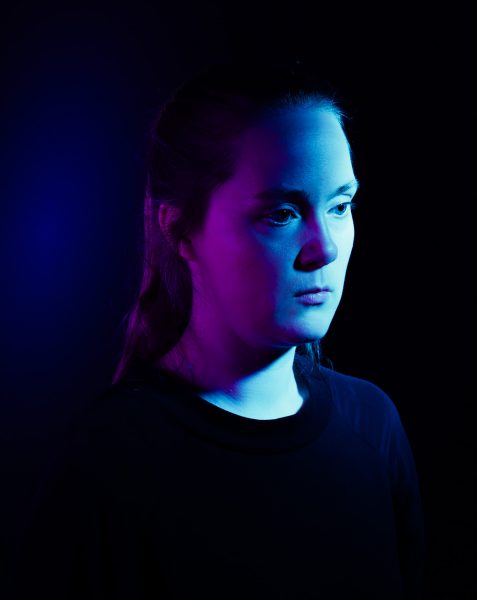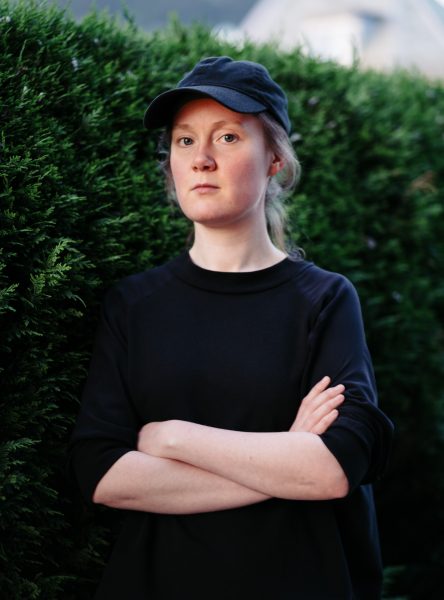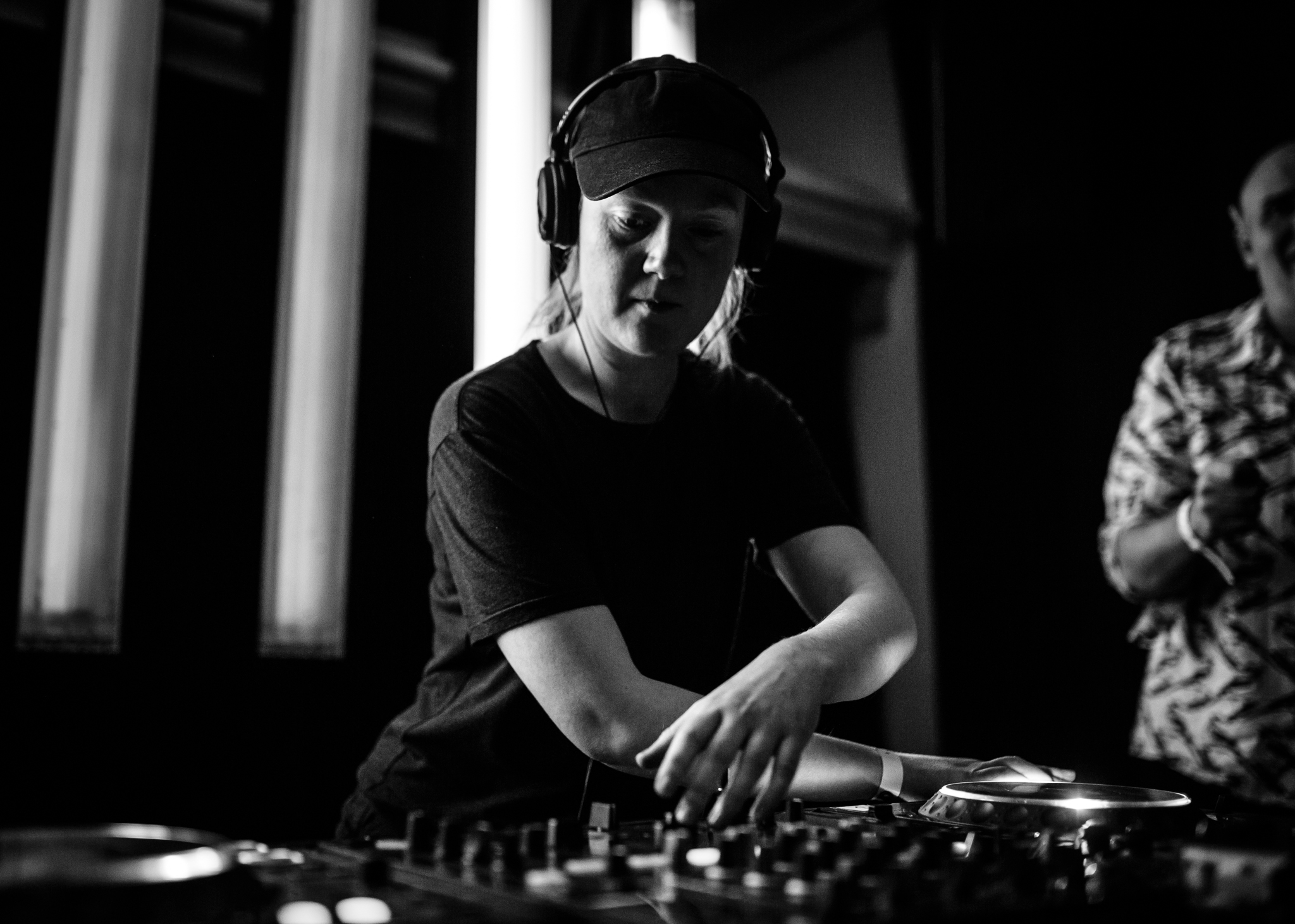Electronic music has always thrived in Bergen. From artists like Annie and Kings of Convenience who first established a scene around the city to artists like Telephones and Skatebård that was born into that scene, Bergen has often lead the way for House music in Norway and it comes as no surprise that at a time of Techno’s heightened popularity that the city should yet again be at the forefront of electronic club music in Norway.
Although musical institutions like PLOINK have long been flying the flag for the genre, the music’s recent surge in popularity is being propagated by a new generation of DJs, tastemakers and producers in the city. Like the rest of the known world there is a wave of Techno enthusiasts currently sweeping over the scene in Bergen and one of the DJs at the crest of the wave is Ida Nerbø.
A DJ with an extensive background in the Norwegian coastal city, Ida Nerbø has been a fixture in booths around Bergen for some time, and it’s under theTechno banner, that she has made her most indelible impression on the scene to date. She coined the #bergentehnocity as a way to consolidate the movement and founded DOT by way of perpetuating the sound and spirit of Techno.
DOT is a fanzine, a club event, a collective and mix series spearheaded by Nerbø, bringing artists like Varg to Bergen and providing a platform for local Techno DJs and artists like Kahuiun and Christian Tilt. Ida Nerbø imbues the role of facilitator behind the DOT universe, and although she is a very adept hand at DJing in her own right, through DOT she places greater emphasis on the people and the scene around her.
Her own sets offer a visceral and encompassing view of the Techno genre, from its dark, brooding depths to its ethereal hedonistic heights. With elements of Acid, dub and atmosphere informing the selections in her sets, she evokes a cinematic purview of the dance floor, underpinned by the brutal body-energy of Techno. She’s lit up stages and booths in Bergen at the likes of Østre and EKKO, and with her next stop at Jaeger looming closer, we reached out to find out more about the DJ and the linchpin of the DOT collective.
*Ida Nerbø plays Frædag with Julia Govor in our basement next week.
t
What are you listening to right now?
Right now I’m listening to a Semantica playlist going through the label material. Acronym with The Inevitable is next.
Can you tell me a bit about your relationship with music. What’s your first memory of hearing a piece of music and being intrigued by it?
Back when I was maybe 11-12 years old I had a radio in my room and would listen to random pop charts and stuff like that. One day I found a strange looking cassette in the house. On the cover was a picture of a robot-like man. The music was bleep bloop all the way. Very fascinating, weird and catchy. At the time I didn’t understand what it was, but the sound was just so different and new that it stuck with me. It was Kraftwerk.
What encouraged you towards a career as a DJ?
For some reason I’m often more comfortable in the DJ-booth and in the club than anywhere else. It’s a zone where I feel creative and have a lot of fun. In that way playing music for others feels natural. A lot of encouragement comes from my friends and other DJs too. The techno scene is very inclusive and we all support each other a lot.
 When and how did Techno exactly come into your life and what drew you to the genre?
When and how did Techno exactly come into your life and what drew you to the genre?
I started playing techno for real around 2015. Before that I was more into disco, which I still enjoy a lot by the way. But I wanted to go deeper and explore the hypnotic sides of music. And I found that techno has so many layers to it. I’m intrigued by how it can be both dark and mystic, and energetic and powerful at the same time. Techno has this capacity of darkness yet bringing such joy.
I’m very much drawn to exploring the textures and qualities of sounds in techno. For instance, how short and fast can a sound be, or how long and big? What makes a track hypnotic and energetic at the same time? These paradoxes and extremes interest me.
Bergen has a great Techno and club community there. How did the scene and other DJ’s influence you if at all?
Because the scene holds a high level, it’s easy to find inspirations. EKKO, Borealis and PLOINK to name a few contribute to the high quality of club events, putting up everything from experimental noise acts to straight-on techno. Having the opportunity to perform on good sound systems, with high quality productions, is so important to build skill as a DJ. When you’re put on a line-up where you’d easily go to listen to anyone of the other artists, that does something with you and how you prepare for that gig. I’m really proud to have played many of the festivals in Bergen, and I’ve been lucky to share stage with many of my heroes. I always learn a lot from that.
Tell me about the #bergentechnocity hashtag and what started it all?
Yeah, that was an idea I came up with when we prepared for a gig that was a collaboration with several DJs and collectives back in 2016. We joked about how the techno scene was growing and Bergen becoming a Techno City. Many of us had gotten into techno without knowing about each other. Like, we had even been to the same events before, each going there alone, and now its was fun to find each other and build the community. So I suggested we use #bergentechnocity as a tag to unite and make it easier for anyone to join and contribute to the scene. Then later to my big surprise I discovered that the tag had several hundred pictures on Instagram from the Bergen scene. Now I guess it lives its own life.
How does that relate to your fanzine and your DOT club nights?
I guess in everything I do, I want it to be inclusive and open for everyone who wants to join.
What encouraged you to start DOT and what are some of the ideas behind the night in terms of the bookings and the music policy?
Obviously, it’s a techno party at its core, but I also wanted to take a different approach to the whole clubbing experience. Our mission with DOT is to make every night a unique experience, and to present a variety of styles and connect that with light design, installations and artwork. We’re a diverse crew and that reflects in the curating I think. Also, sound quality is extremely important, and at the same time we see the feeling of the room and the visuals as equally important as the music. We are lucky to work with Østre – hus for lydkunst og elektronisk musikk as our main venue, with the Meyer sound system and in the black box main room, plus volunteers and crew that helps out every time. I’m proud of what we have achieved so far, but of course we’re continuously working to improve.
Techno has quite a few different interpretations today. How do you, and what you do for DOT, interpret the genre?
I think of techno in its broadest sense, it comes down to the energy and groove of the music more than a set definition. Put a disco track on +8 and give it some extra kick, and that can fit into a techno night. With DOT we also focus on techno aesthetics, that the choices we make about for instance light design influence the experience of the music and vice versa.
It’s enjoying a lot of popularity at the moment. I know that PLOINK has been one of the only concepts that have been promoting the genre in Bergen in the past. How has the popularity affected the scene and community in Bergen?
For me, it’s very cool to see that techno is gaining ground and growing. More DJs are entering the community, and it makes it easier to learn from each other and exchange tracks and so on, so it definitely has a positive effect. In many ways there’s a culture of sharing now, where the experienced artists invite new DJs to play, teach the tricks of the trade and generally support new initiatives. I feel that’s an important aspect of techno culture, so it’s nice to see that evolving.
Has it had any adverse effect?
Right now I don’t think so. I feel that the DIY attitude and overall energy in the scene is strong, and getting more people involved strengthens the community. It makes the scene more diverse.
 What do you look for in a Techno track to make it into your sets?
What do you look for in a Techno track to make it into your sets?
Something important for me is the sounds and texture of the tracks, and I make an effort to include tracks that offer something different. It can be a specific sound that interests me, like a deep rumbling bass or an acid sound that catches my ear. My sets are a lot about energy and vibe too. I really try to give people an experience, and I like tracks that are quite physical, so that people can feel the music and remember it afterwards.
A lot of my time goes towards looking for tracks that would interact with each other really well too, so that they can tell a story together. Not only to mix one after the other, but also for connecting the start of the set with a later stage. It can be certain sounds or maybe an atmosphere that points to a direction and serves as a way to give a hint of what might come. I find it interesting to try and build a narrative that way. Often that happens intuitively too. I improvise in the moment so that if there is a groove or a sound that sparks an idea, that can lead into a certain chain of tracks. If I’m lucky that happens really naturally and people are into it too, and I can share that with the people in the club.
You haven’t made the leap into the producer role yet. Is that something that you might want to do in the future, and what is it about DJing that keeps you interested?
I’m working on a few projects at the moment, exploring ways of production and with different sounds, and some of it is very promising. But it’s a long way to go, as I guess all producers before me have experienced. But definitely, yes, I consider myself a producer in the sense I do make music and play my own material occasionally in DJ-sets. Then it can be layered with other tracks and I can experiment with how it sounds in the club. I find that really interesting, and the way the material connects with other peoples music can inspire new ideas and so on. This is one of the reasons I think DJing will always be exciting, whether you focus on selection, technique or creativity, there’s really no limit to what you can do.
We’re looking forward to having you play at Jaeger. How do you expect your set going?
I’m looking forward to it too! It will be techno, but other than that anything can happen!
Anything you’d like to add to sign off?
Stay safe and have fun!

